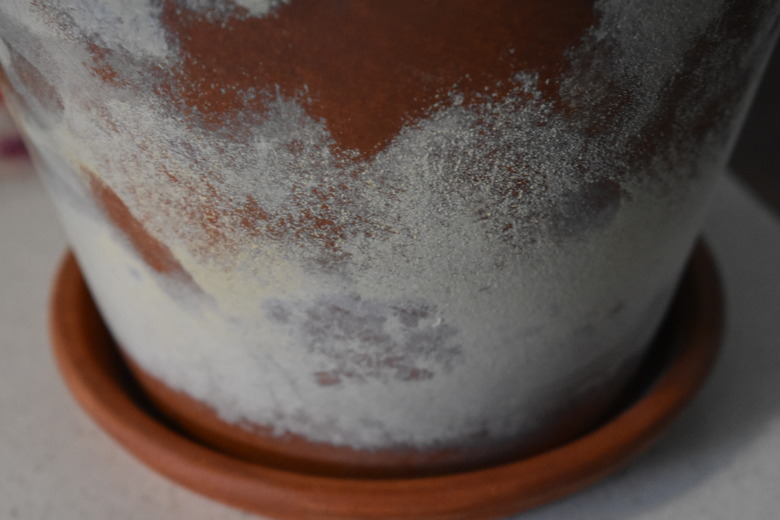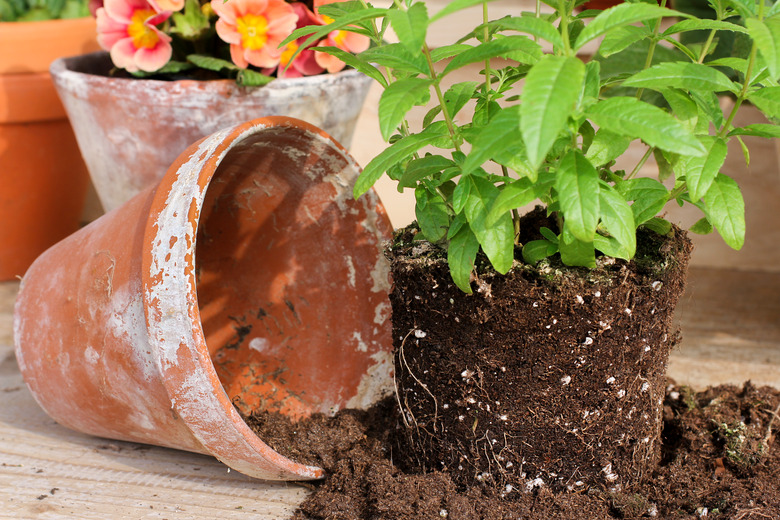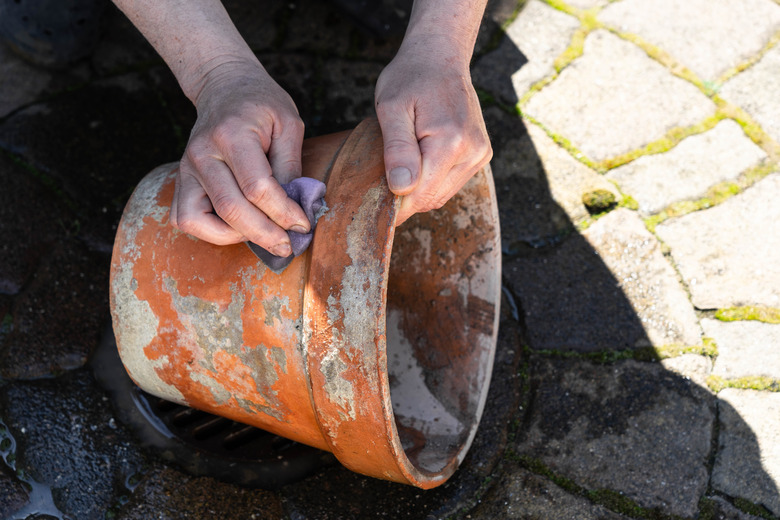What's The White Stuff On Your Terracotta Pot? Here's The 411
Traditional terracotta pots are favored by plant lovers for more than their gorgeous color; the naturally porous, unglazed clay absorbs moisture from the soil, which helps to prevent over-watering. But there is one particularly noticeable downside — terracotta also soaks up fertilizers, salt, and other chemicals found in tap water, and as the moisture evaporates, a chalky white residue is left behind. So nope, it's not mold (if that's what you were worried about): That white stuff is just an accumulation of calcium, salts, and those chemicals from your water. Good news is, it's not toxic or harmful.
Even if you dig the weathered, rustic look on the outside of your terracotta pots, allowing the white stuff to fester on the inside is a bad idea. Dirty pots are already a breeding ground for diseases, pests, fungus and mold, but a buildup of soluble salts seeping into your plant's soil almost guarantees its demise. Terracotta pots should be given a thorough scrubdown before a new plant moves in, and ideally be cleaned once a season while they're in use. Here's how to get it done:
STEP 1: If necessary, temporarily rehouse your plant and its soil in another container, and rinse away any remaining clumps from the inside of the pot.
STEP 2: Fill a plastic bucket or tub with a mixture of one cup white vinegar for every three cups of water until there's enough liquid to completely submerge the terracotta pot. If you're cleaning a bunch of pots at once, you can swap the vinegar for bleach, using 1/4 cup for every five gallons of water. If you only want to clean the inside of your pot, plug any drain holes and fill them instead. Let the pots soak for 20-30 minutes.
STEP 3: While most, if not all, of the residue should have dissolved, attack any stubborn pots with a scrub brunch and a paste made from baking soda and water.
STEP 4: Give them a final scrub by hand with dish soap and water to get rid of any remaining bacteria. Rinse thoroughly and allow the pots to dry completely before repotting your plant.
To keep your terracotta pots and their green inhabitants in good health, try these tips and tricks:
- Instead of watering your plants from the tap, which is chock full of minerals and salts, use rainwater! Whenever a storm is a-brewin', stick any indoor plants outside, along with an empty bucket, that way Mother Nature can quench their thirst even on the driest of days.
- Trade chemical fertilizers for organic — they're better for your pots, your plants and the environment.
- Every few months, get rid of any salt buildup in your plant's soil by flushing it with twice as much water. (If your plant is potted in a gallon of soil, flush it with two gallons of H20, making sure it is able to freely drain.)
- Whenever you water your plants, allow them to drain completely before sitting them in a saucer or dish, unless the plant is meant to be watered from the bottom up.
- Sometimes that pesky white residue will show up on top of the soil itself; when you see it, get rid of it, and if it keeps happening, that's a sign your terracotta pot is ready for another cleaning!



